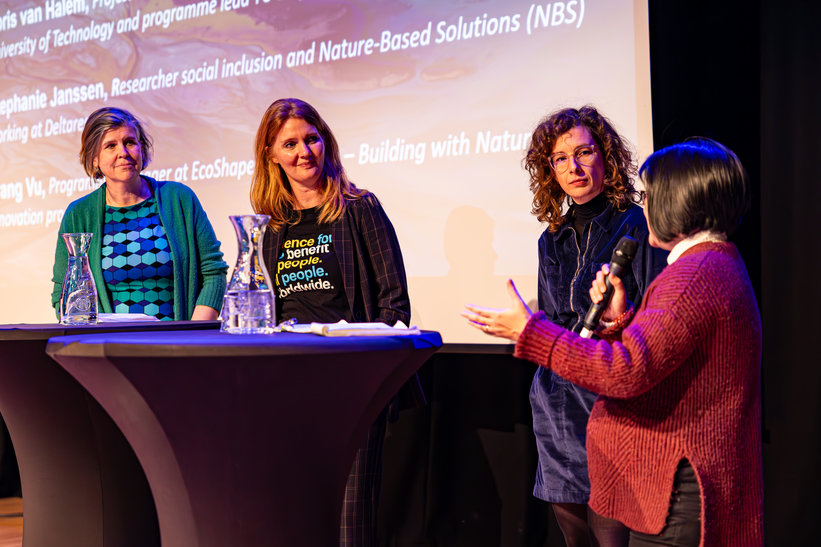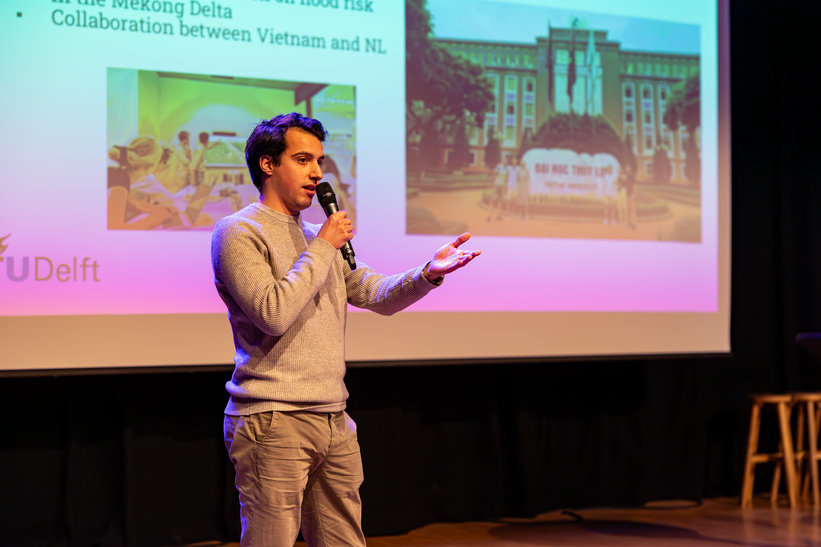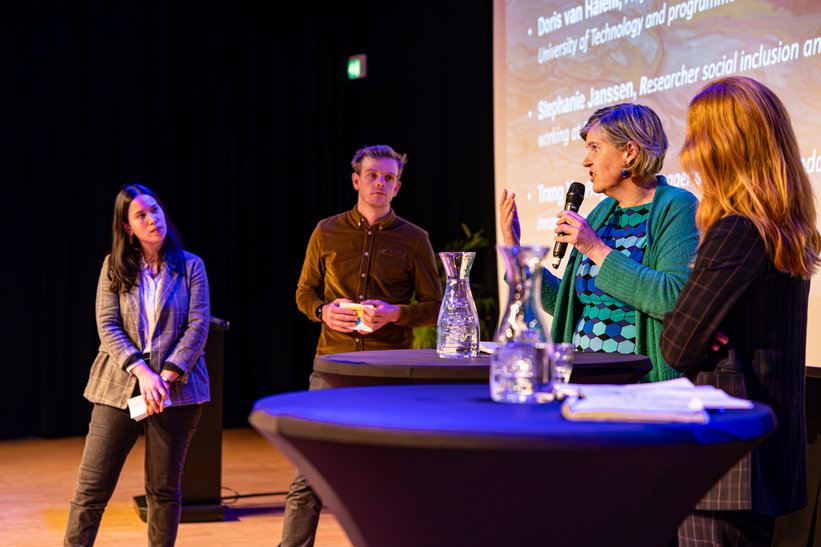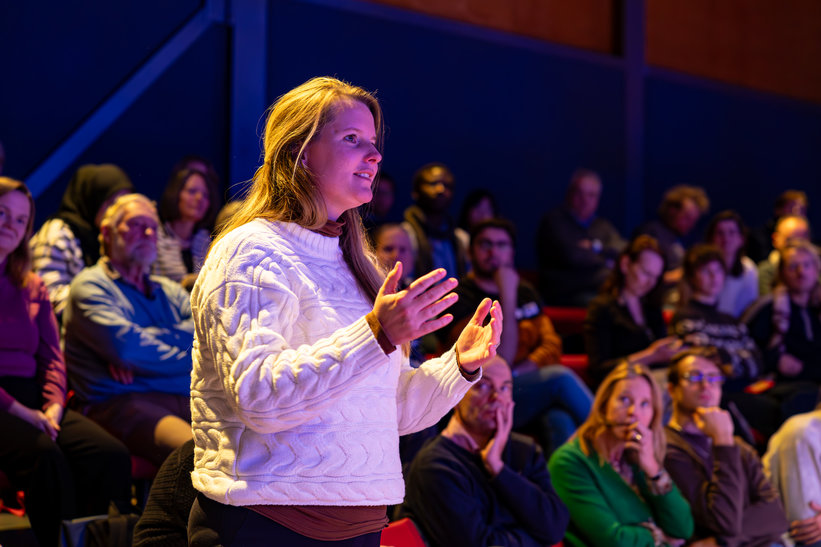Delft Global Lunch: Resilient Delta’s
On the 9th of January 2024, TU Delft | Global Initiative organised a special edition of the Global Lunch: Resilient Delta’s Worldwide. This was to coincide with the Dies Natalis week, which centred on Resilient Delta’s and all throughout the week leading up to the Dies Natalis on Friday, events were set up to call attention towards achieving resilient delta’s.
TU Delft and Resilient Delta's Worldwide
The session opened with 3 pitches showcasing work happening around the TU Delft Campus on Resilient Delta’s. First Leon Hermans (Faculty of Technology, Policy & Management; IHE Delft) presented his work on partnerships for building resilient delta’s, focusing on water policies analysis. He highlighted that one cannot achieve resilient delta’s alone, but that partnerships are vital. The differences between partners is what makes the success.
This was followed by a pitch from a student group who travelled to Vietnam as part of an ongoing research and living lab on the Mekong Delta. Marjan Kreijns, director of The Green Village, opened the pitch to illustrate the longevity of this particular partnership, and how students play a role in strengthening and deepening the relationship.
The final pitch was by Carola Heijn (Faculty of Architecture and the Built Environment; Leiden-Delft-Erasmus), who through her project on Ports and Historic Cities emphasized the need to think beyond just the port, but to also consider the impact on the larger area.
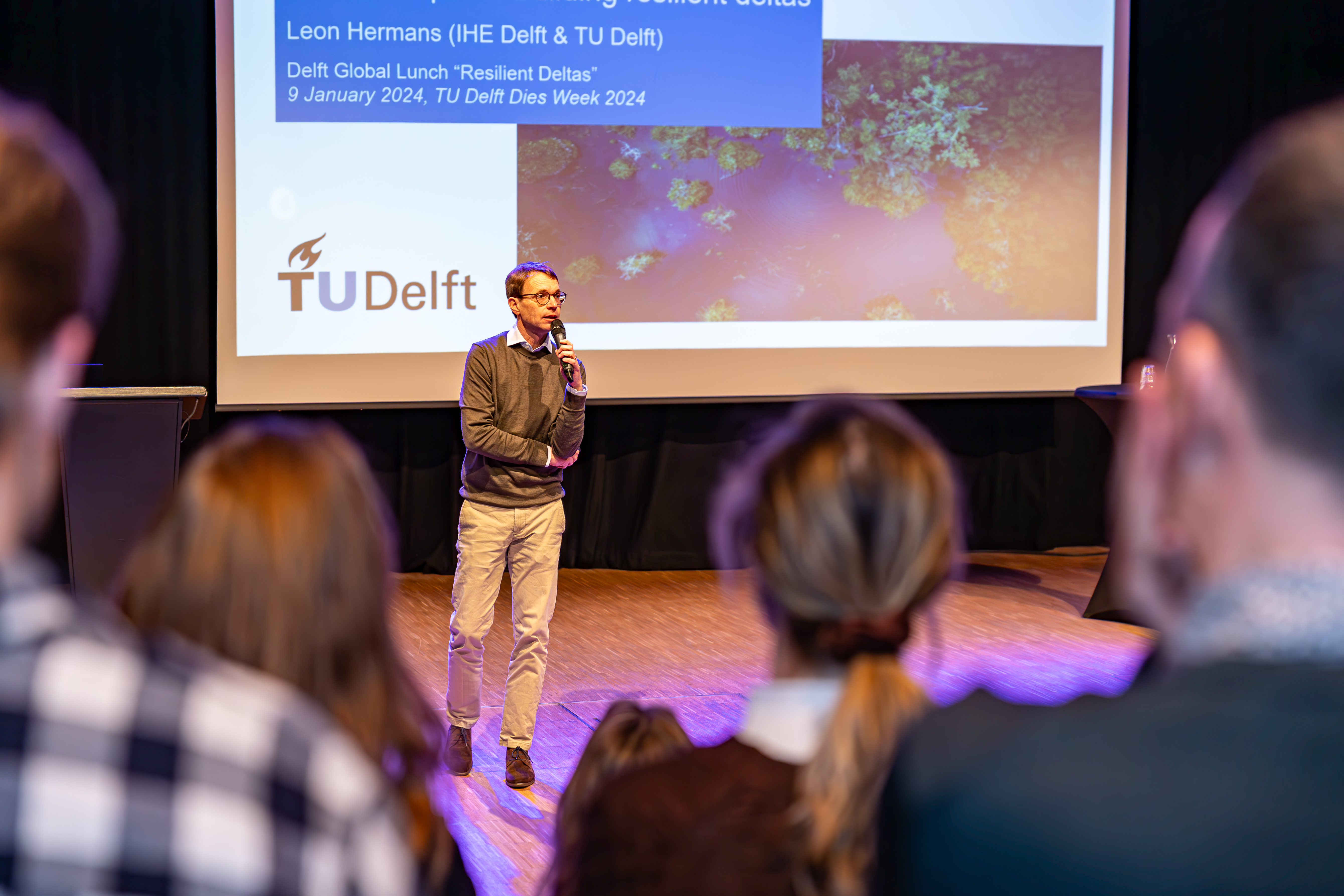
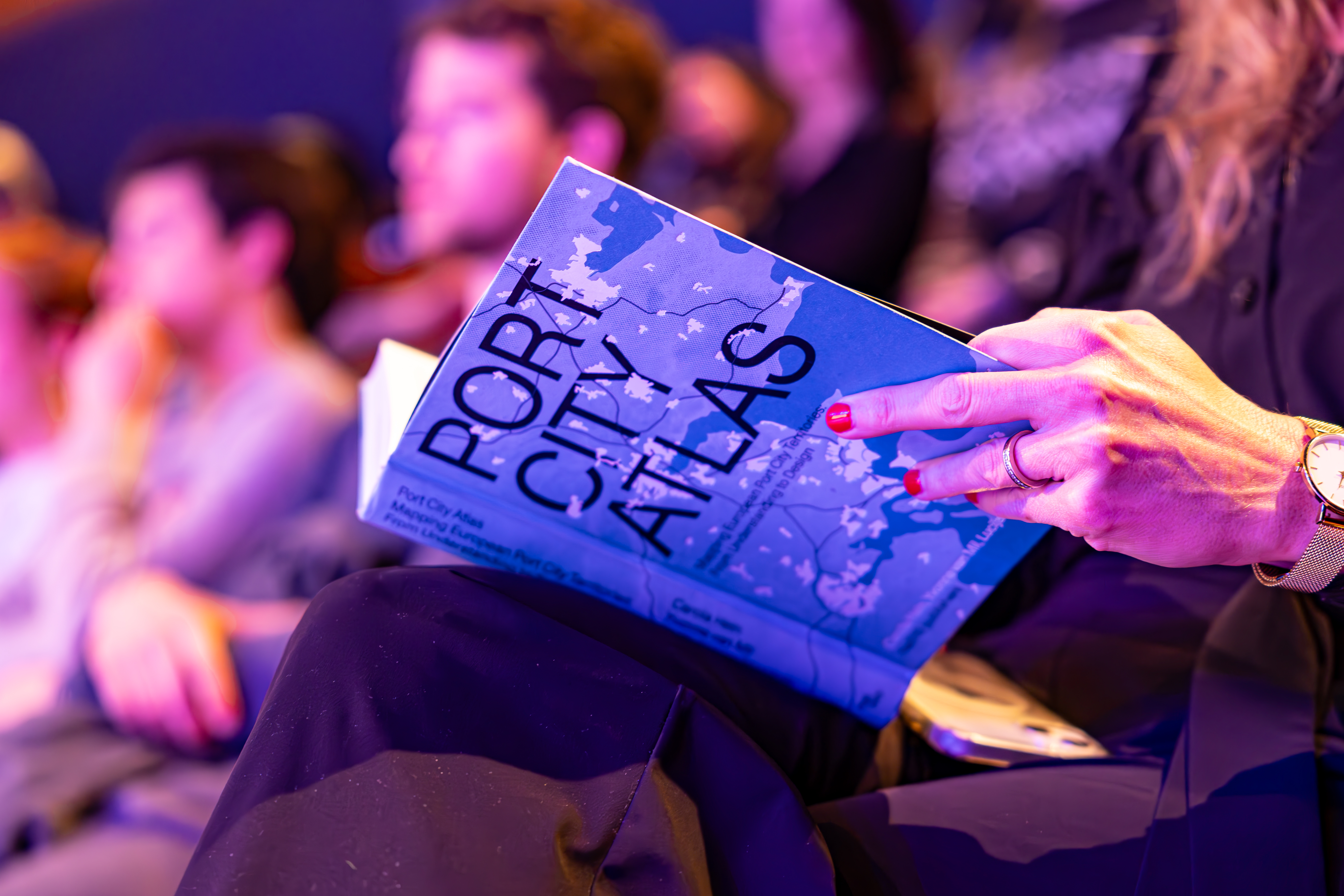
Panel Discussion
The 3 pitches were followed by a panel discussion on Building Resilient Deltas: Insights from Diverse Perspectives. It brought together a distinguished group of experts with diverse backgrounds and experiences, shedding light on the complex challenges and innovative solutions associated with delta resilience. The panelists included Meike van Ginneken, Water Envoy for the Kingdom of The Netherlands; Doris van Halem, Professor in Drinking Water Quality & Treatment and Programme Lead Water for Impact at TU Delft; Stephanie Janssen, Senior Research at Deltares; and Trang Vu, Program Manager at Ecoshape.
Meike van Ginneken emphasized the need for interdisciplinary collaboration to address the multifaceted issues of delta resilience. She highlighted the importance of integrating ecological, hydrological, and social considerations in delta management strategies. Listening is key to achieve success, but often building relationships takes time, when perhaps there is a lack thereof with for instance the delta’s in Bangladesh and the continued effects of climate change. One can consider things that can be done right away, while at the same time continue the conversation and listen for the long term.
Doris van Halem shared the perspective that there is no such thing as one type of water, but there are many different forms of water such as drinking water, irrigation water, etc. In a delta, all these types of water come together and pose an interconnected challenge. Furthermore, there is a continued need to educate students both in the latest developments in water research, but also in intercultural teamwork and to recognize that different countries can have alternate values both in working together and in what they want in a resilient delta.
Related, Stephanie Janssen discussed a social inclusion journey, which involved receiving critical feedback on how The Netherlands approached collaborations on delta’s in the past, with concerns that they were too assertive and insufficiently attentive to the local context. In response to this feedback, a community practice was initiated with various partners, focusing on listening rather than explaining. Emphasis was placed on acknowledging that no one can address the issues alone, highlighting the importance of collaboration. Understanding others' perspectives and remaining open to different viewpoints were emphasized as essential components of the process.
Trang Vu discussed the need to engage with universities, but also importantly with policymakers and local governments. This is necessary in order to connect research with local policy, align the timelines different stakeholders may have, and to ensure embedding and long-term sustainability of a project.
Throughout the discussion, the panelists emphasized the interconnected nature of delta resilience and the importance of a holistic approach. They called for collaboration between scientists, policymakers, communities, and private sectors to create comprehensive and sustainable solutions for building resilient deltas in the face of climate change and environmental challenges.
Photos by Robèrt Kroonen

